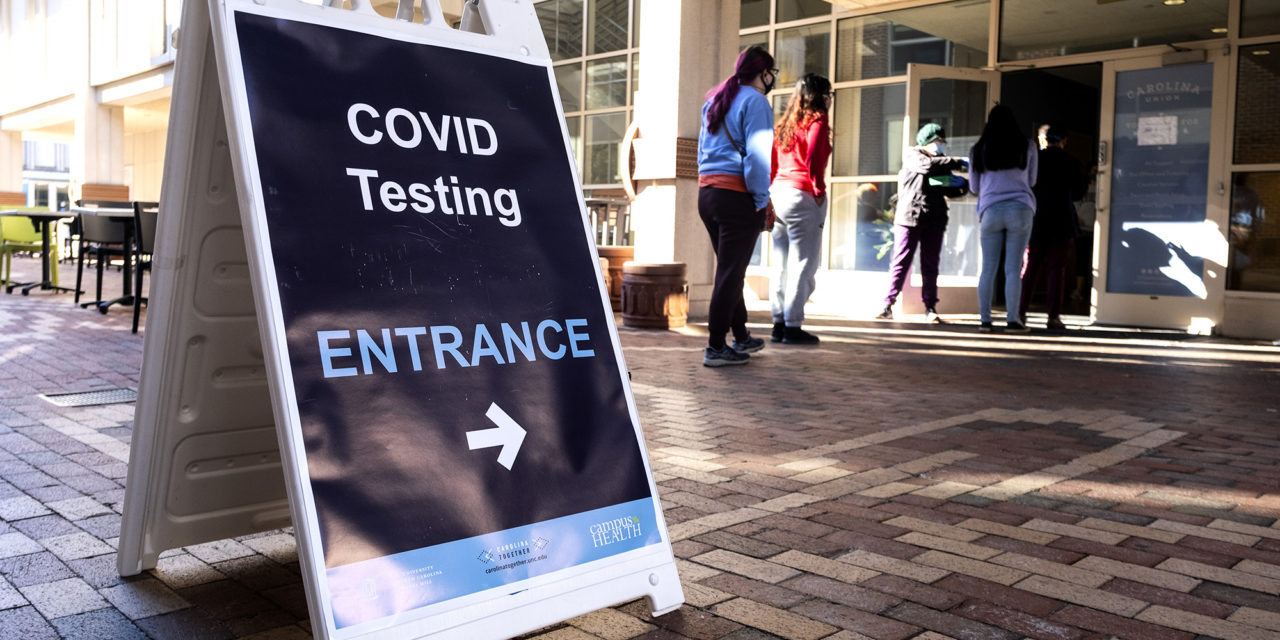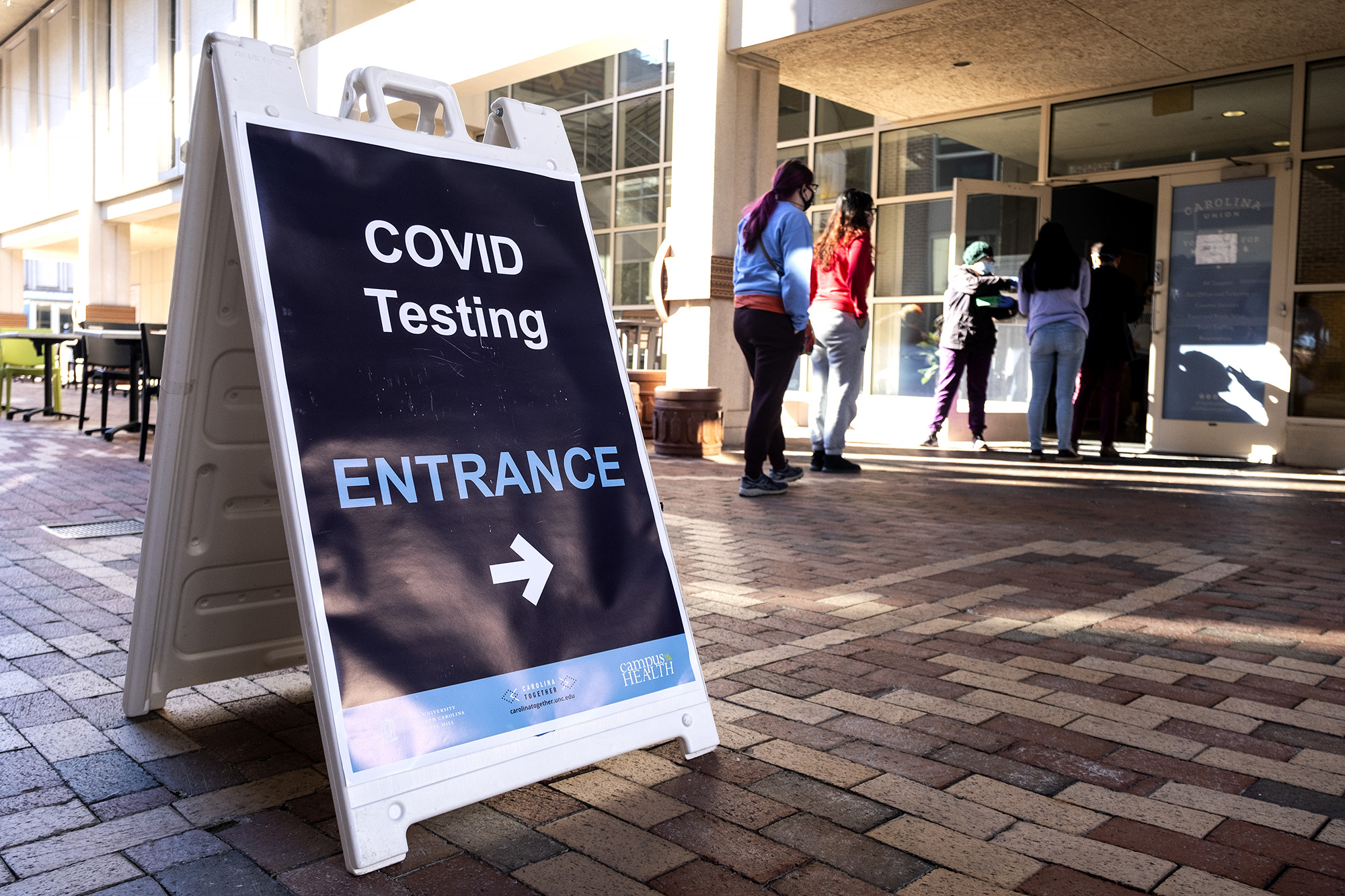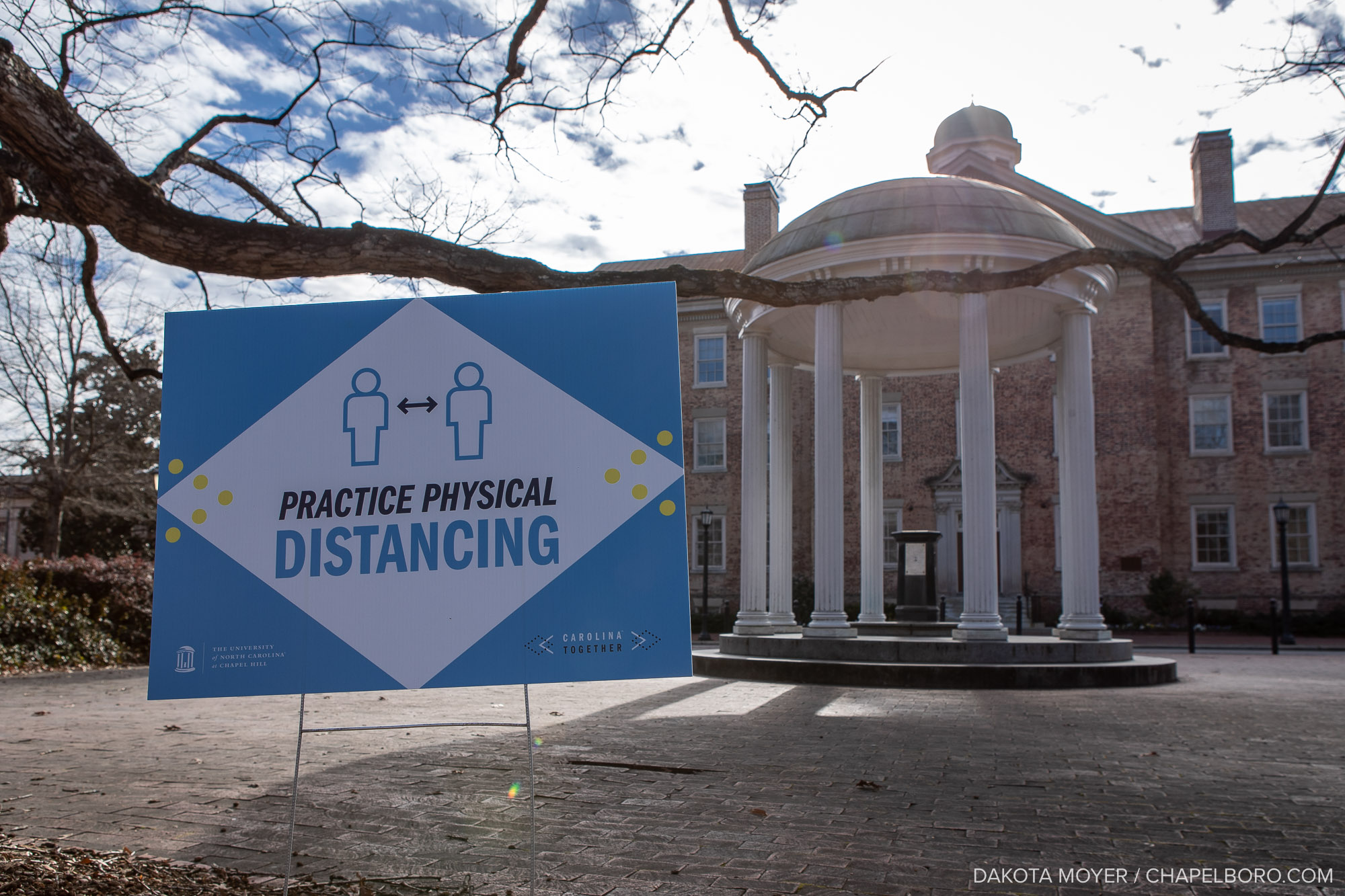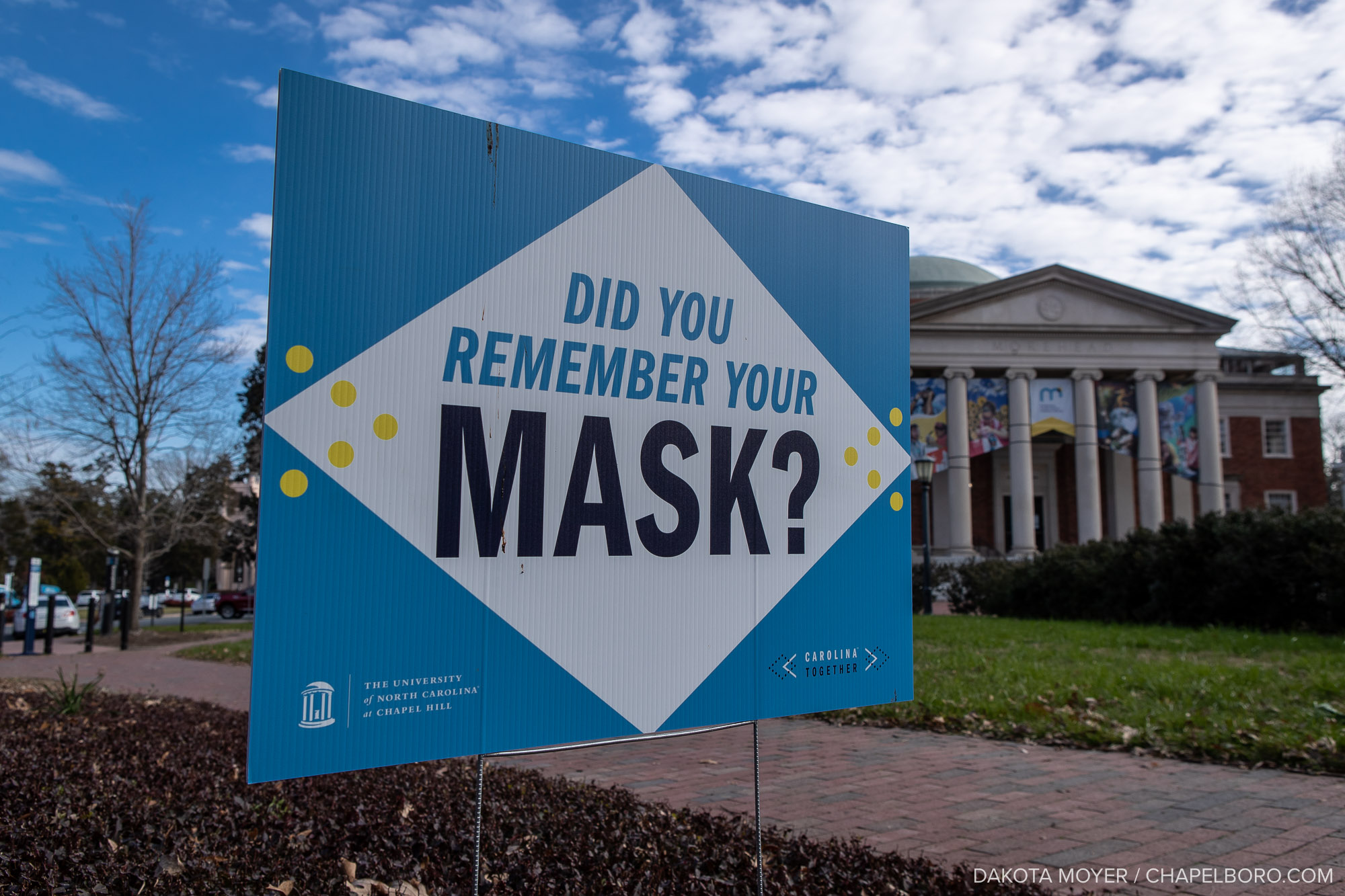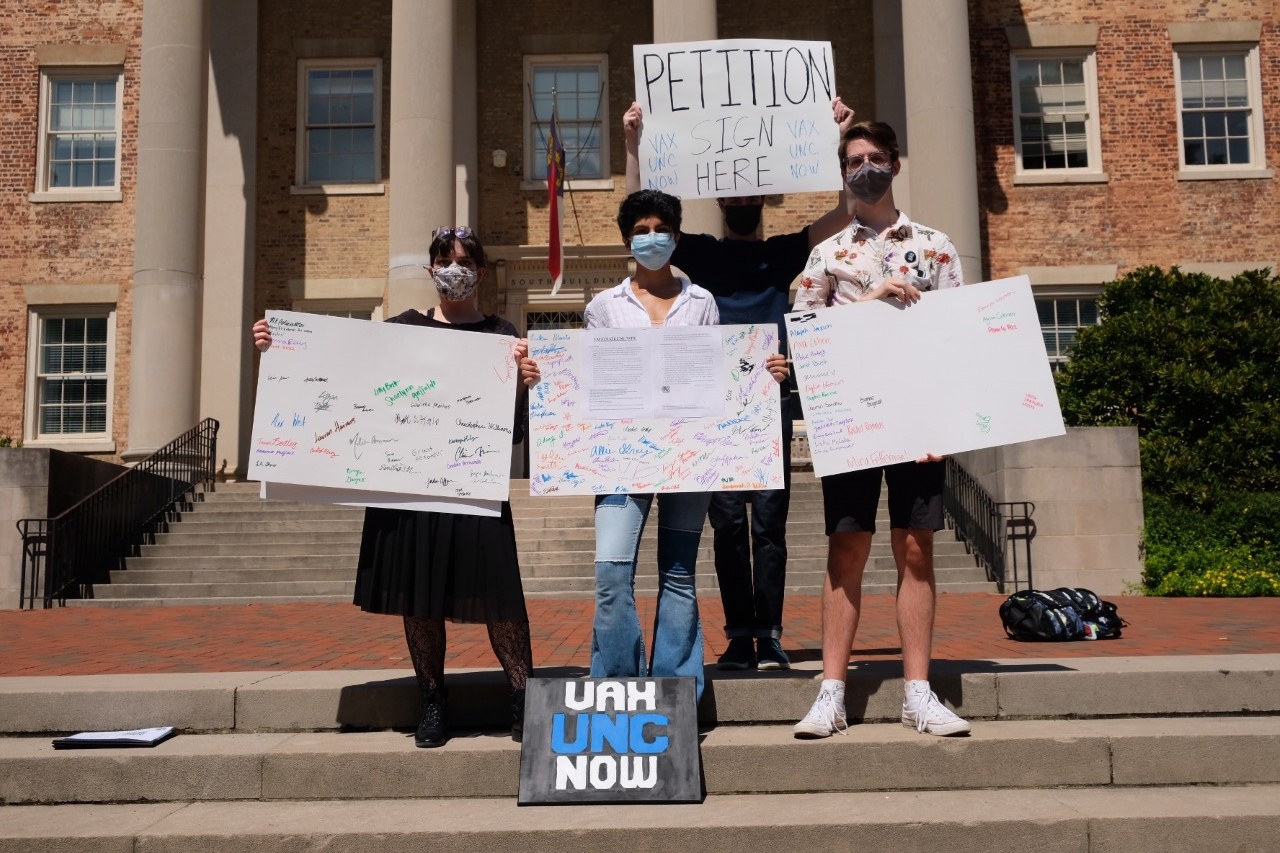Despite vigorous COVID-19 protocols and high vaccination rates in Orange County, COVID-19 cases at UNC continue to rise.
As of Thursday, August 26, the UNC Carolina Together COVID-19 dashboard shows 190 positive student cases through on-campus testing since UNC’s first day of classes on August 18.
The dashboard also reports 64 students currently in isolation housing and 9 students in quarantine housing as of August 26.
“We have seen an increase in positive cases this week,” Campus Health Executive Director Ken Pittman said in a statement to 97.9 The Hill. “While we know we cannot eliminate COVID cases given the level of community spread in North Carolina and the Triangle, we planned and prepared for this and are employing enhanced testing protocols to help to limit the spread.”
While only Avery Residence Hall is listed on Carolina Together as a housing cluster, some students in other residence halls have been advised to complete a COVID-19 test due to other positive cases in the building.
A letter sent to Morrison students this week by Carolina Housing read, “We have identified positive cases in Morrison, so out of an abundance of caution, we are recommending COVID testing for selected residents to keep the campus community as safe as possible and as part of our continued effort to slow the spread of COVID-19 infection on our campus.”
The letter recommended all residents on Morrison floors 3, 5 and 7 to complete a test at the Carolina Together Testing Center as soon as possible, regardless of their vaccination status.
The notification to residents does not mean all students in the residence hall are close contacts or subject to isolation or quarantine.
Currently, the only students required to complete COVID-19 tests through the Carolina Together Testing Program are students who did not attest being vaccinated. Those students are now required to test twice per week. Unvaccinated faculty will begin mandatory COVID-19 testing September 15.
Students who are or become symptomatic are also asked to seek testing at Campus Health.
University leaders continue to recommend all members of the community receive their COVID-19 vaccine. As of August 27, 89 percent of students and 82 percent of faculty and staff have attested to be vaccinated.
Chancellor Kevin Guskiewicz shared a message with the UNC campus community Friday evening.
“We know we cannot eliminate COVID-19 cases given the level of community spread in North Carolina and the Triangle,” he said. “We are seeing positive cases on campus, and we planned for this. I am proud that nearly 90% of our students and over 82% of our employees are vaccinated. Our goal is to achieve 100% soon.”
Featured Photo via Jon Gardiner/UNC-Chapel Hill
Chapelboro.com does not charge subscription fees. You can support local journalism and our mission to serve the community. Contribute today – every single dollar matters.

